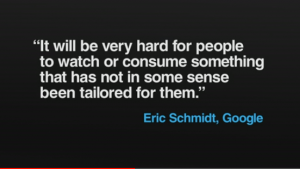First of all let’s look at the broad categories questions usually fall into:
CHARACTER
THEME
OPEN
STYLE
CHARACTERS
You may be asked to discuss the following when it comes to characters:
King Lear:
- a tragic hero? (does he recognise his flaws and gain self-knowledge?)
- his nobility (is he a good man? / strengths & weaknesses / virtues & flaws)
- his relationship with his daughters & treatment of / by them
- the extent to which he is responsible for the tragedy which occurs
- our level of sympathy for him
Gloucester:
- his nobility / is he a good man? / strengths and weaknesses / virtues and flaws
- our level of sympathy for him
- his relationship with his sons & treatment of / by them
- his dramatic function in the play
Lear & Gloucester:
- how and why their stories mirror each other
- the extent to which they bring about their own downfall
- our level of sympathy for them
Cordelia:
- too good to be true or a believable character?
- virtues and flaws / our level of sympathy for her
- dramatic function in the play?
Goneril and Regan:
- treatment of their father
- extent to which they present a very negative view of women
Edmund:
- an admirable villain? or a sociopath?
Edmund and Edgar:
- contrast in their characters and personalities
Kent and The Fool
- dramatic function and believability
All characters:
- contrast the extremes of good and evil presented in the characters in the play
- the play is very pessimistic about human nature
- the play is very pessimistic about human relationships / family / parent – child dynamics
THEMES:
The major themes in the play are:
- Justice
- Family
- Loyalty & Betrayal
- Blindness
- Appearance vs Reality (Deception/Manipulation)
- Madness
- Love
- Good and Evil
- Suffering
- Forgiveness
- Kingship
For each theme – no matter what the wording – ask yourself
WHO does this theme apply to?
HOW / WHY does this character have to deal with this issue?
Do they CHANGE over the course of the play?
Are there any SCENES which highlight this theme specifically?
What are our FINAL IMPRESSIONS of this issue?
OPEN QUESTIONS:
- Relevance to a modern audience
- Pessimistic play?
STYLE QUESTIONS:
- Language & Imagery
- Dramatic Irony
- Compelling Drama – scene or scenes
SAMPLE QUESTIONS
In each case you are given a statement which you can fully agree with, partially agree with or completely disagree with. In the most recent Chief Examiner’s Report, students were advised to avoid taking an overly simplistic approach (“I agree 100% that…”). It’s understandable that this would be your first instinct under exam conditions, but remember that a single sentence rarely sums up accurately the complexity and nuance of an entire play. Yes, you’ll look for evidence that supports the statement, but you’ll also need to display an awareness that different phases in the play contain different truths. Your attitude to a character, theme, relationship in the play will change and morph as the play unfolds and the plot develops…
King Lear
“King Lear is a man more sinned against than sinning” – Discuss
“Lear is a ‘foolish fond old man’ who deserves everything he gets” – Discuss
“Lear embarks on a harrowing journey through suffering to self-knowledge. At the end of the play he is a better and wiser man“
“The play King Lear is a realistic tragedy that depicts the tragic consequences of one man’s folly“
“King Lear is not a tragic hero, but rather a victim of circumstances“
Gloucester
“Gloucester is a weak and gullible man, but at heart, a decent one”
“Gloucester serves an important dramatic function in making Lear’s circumstances more credible”
“Discuss the dramatic significance of the Gloucester story in the play King Lear”
Lear and Gloucester
“Neither Lear nor Gloucester are deserving of the love and service they receive from their followers”
Cordelia
“Cordelia shares with her father the faults of pride and obstinacy”
“Cordelia’s dramatic function in the play is twofold: her wisdom highlights her father’s foolishness; her goodness highlights her sisters’ malevolence”
Goneril and Regan
“Lear’s evil daughters allow Shakespeare to present a very negative view of women in the play”
Edmund
“Edmund is a sociopath: a charming liar, incapable of remorse, who views men and women merely as obstacles or aids to his ambition”
“Edmund is an admirable villain. At the beginning of the play he has nothing; by the end he is almost King”
Edmund and Edgar
“Gloucester’s sons represent the very best and the very worst in human nature”
Minor characters: Kent & The Fool
“The Fool serves as Lear’s conscience in the play. When he disappears, it is because Lear no longer needs him”
“The fool is an unnecessary distraction in the play King Lear”
“Kent is too loyal to be believable as a real human being”
General character questions
“The play King Lear offers characters who represent the very best and the very worst in human nature”
“Shakespeare’s King Lear presents a dark and pessimistic view of humanity”
THEMES
Justice
“Cosmic justice is denied, yet human justice prevails in the play King Lear”
Family
“The relationship between parents and children is unrealistically portrayed in the play King Lear”
Loyalty (&/or Betrayal)
“It is only the loyalty of loved ones that enables Lear and Gloucester to endure their sufferings”
Blindness
“The theme of blindness – both physical and emotional – is dramatically presented in the play King Lear”
Appearance vs Reality (Deception/Manipulation)
“In King Lear, whilst characters are initially fooled by appearances, they gradually come to see the truth”
Madness
“In King Lear, ‘sane’ characters frequently behave in a crazy manner, whilst ‘mad’ characters at times seem perfectly sane”
Love
“Love as a redemptive force is a major theme in the play King Lear”
“The play King Lear memorably explores the meaning of love“
Good and Evil
“King Lear examines the nature of good and evil but neither force emerges triumphant”
Suffering
“Learning through suffering is central to the play”
Forgiveness
“The importance of self-knowledge and forgiveness is strikingly evident in the play King Lear”
Kingship
“The play King Lear explores what it means to be a good King”
OPEN QUESTIONS
“The play King Lear offers us one central experience: pessimism”
“Shakespeare’s vision of the world is not entirely pessimistic in the play King Lear”
“King Lear is one of the greatest tragedies ever written”
“Scenes of great suffering and of great tenderness help to make King Lear a very memorable play”
“The two plots of King Lear are closely paralleled in theme, character and action, to great dramatic effect”
“What, if any, relevance, does the play King Lear hold for today’s readers?”
LANGUAGE / STYLE
“King Lear is a play filled with striking images and symbols which heighten our experience of the play”
“Dramatic irony is used to tragic, and occasionally comic effect, in Shakespeare’s King Lear”
“The way characters speak accurately reflects their personality in Shakespeare’s King Lear”
“King Lear contains many scenes of compelling drama, but the extremity of the cruelty and violence presented prevents the audience from achieving catharsis. Rather than a release, we feel haunted by what we have witnessed“







